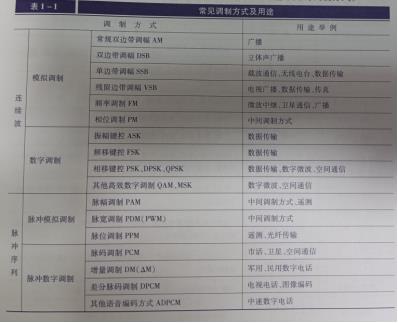1. Communication business classification
According to different types of communication services, communication systems can be divided into telegraph communication systems, telephone communication systems, data communication systems, and image communication systems. Because the telephone communication network is the most developed and popular, other communication services are often transmitted through the public telephone communication network, such as telegraph communication and long-distance data communication, can be transmitted through the telephone channel. The integrated service digital communication network is suitable for information transmission of various types of services.
2. Modulation-based classification
According to whether the signal transmitted in the channel is modulated, the communication system can be divided into a baseband transmission system and a bandpass transmission system. Baseband transmission is the direct transmission of unmodulated signals, such as local telephone calls and cable broadcasting; bandpass transmission is a general term for modulated transmission of various signals. There are many modulation methods. Table 1-1 list some common modulation methods.
3. Classification according to signal characteristics
The communication system is correspondingly divided into an analogue communication system and a digital communication system according to whether an analogue signal or a digital signal is transmitted in the channel.
4. Transmission medium classification
According to the transmission medium, communication systems can be divided into two categories: wired communication systems and wireless communication systems. Wired communication uses wires (such as overhead wires, coaxial cables, optical fibres, waveguides, etc.) as the transmission medium to complete the communication, such as local telephone, cable television, submarine cable communication, etc. For wireless communication to work, electromagnetic waves have to travel through space. This is done through short-wave ionospheric propagation, microwave line-of-sight propagation, and satellite relay, among other things.
5. Working band classification
Communication equipment is divided into long-wave communication, medium-wave communication, short-wave communication, far-infrared communication, etc., based on the frequency or wavelength at which it works.
6. Classification by signal multiplexing
There are three basic multiplexing methods for transmitting multiplexed signals, namely frequency division multiplexing, time division multiplexing, and code division multiplexing. Frequency division multiplexing is to use the spectrum shifting method to make different signals occupy different frequency ranges; time division multiplexing is to use the pulse modulation method to make different signals occupy different time intervals; and code division multiplexing is to use orthogonal codes to carry different signals, respectively. Signal. Frequency division multiplexing is used in traditional analogue communication. With the development of digital communication, the time-division multiplexing communication system is becoming more and more widely used. Code division multiplexing is mostly used in spread spectrum communication and mobile communication systems for space communication. In addition, there is wavelength division multiplexing, and space division multiplexing.
The above is the article “Classification of Communication Systems” brought to you by Shenzhen HDV phoelectron Technology Co., Ltd. hope this article can help you to increase your knowledge. Besides this article if you’re looking for a good optical fiber communication equipment manufacturer company you may consider about us.
Shenzhen HDV phoelectron Technology Co., Ltd. is mainly a manufacturer of communication products. At present, the equipment produced covers the ONU series, optical module series, OLT series, and transceiver series. We can provide customized services for different scenarios. You are welcome to consult.






